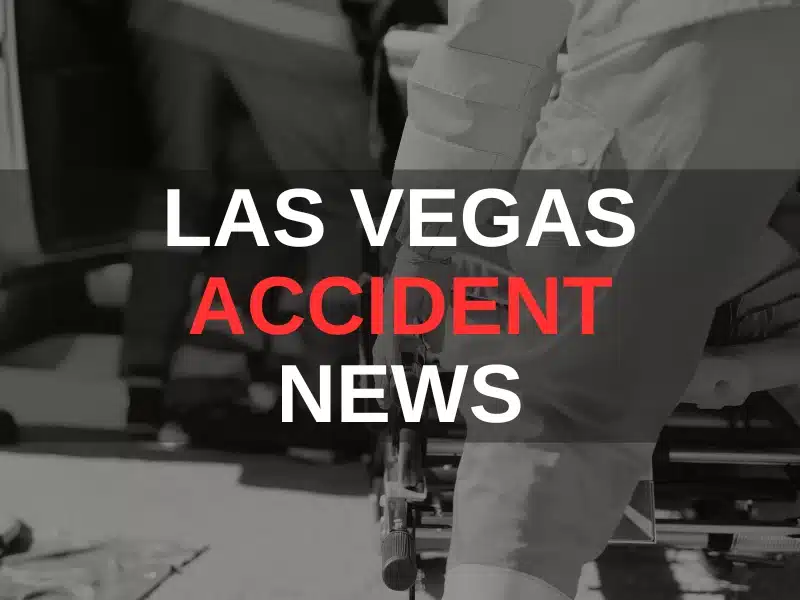Las Vegas, NV (June 9th, 2025) – A former employee of Virgin Hotels Las Vegas is suing the company for negligence, following a violent attack that took place in early 2024. According to court records and police reports, the woman was allegedly beaten by her former supervisor, an incident that left her with serious injuries and lasting trauma.
The lawsuit, filed in Clark County District Court, accuses Virgin Hotels of failing to properly hire, supervise, and protect employees from foreseeable harm. As disturbing as the incident is, the legal issues it raises are not uncommon. When an employer’s failure leads to physical harm, even from a former employee, Nevada law allows injured parties to pursue compensation through civil litigation.
The Allegations Against Virgin Hotels
In her complaint, the woman claims her former supervisor at Virgin Hotels physically attacked her in January 2024, beating her so severely that she required emergency care. Surveillance footage and eyewitness reports supported her account. Police arrested the supervisor, who now faces multiple criminal charges, including battery and attempted murder.
The civil lawsuit focuses not on the attacker, but on Virgin Hotels as the employer. The plaintiff argues that the company failed to exercise reasonable care in the hiring, training, and supervision of its employees. She also alleges the hotel had prior notice of the supervisor’s dangerous behavior but took no meaningful action to prevent the attack.
Claims such as these often fall under Nevada’s employer negligence laws, specifically negligent hiring, supervision, and retention. In some cases, plaintiffs may also pursue damages under vicarious liability if the wrongful conduct occurred within the scope of employment.
When Employers Can Be Held Liable in Nevada
Under Nevada law, employers can be held liable for the actions of their employees in several situations. The most common theories in cases like this include:
Negligent Hiring and Retention
Employers have a legal duty to exercise reasonable care in hiring individuals who will not pose a foreseeable risk to others. If an employer hires someone with a known history of violence or fails to conduct a proper background check, they may be liable for negligent hiring. Similarly, if an employee’s conduct becomes problematic and the employer fails to take appropriate action, they may be liable for negligent retention.
To prove negligent hiring or retention, a plaintiff typically must show:
- The employer knew or should have known that the employee posed a danger.
- The employee’s actions caused the plaintiff’s injury.
- The employer’s failure to act was a proximate cause of the harm.
In this case, if Virgin Hotels had prior complaints or red flags about the supervisor’s behavior, but allowed him to remain in a position of authority, they may be exposed to liability.
Negligent Supervision
Even if an employee appears qualified on paper, an employer must supervise their conduct and intervene if they engage in threatening, aggressive, or inappropriate behavior. Negligent supervision claims are often successful when plaintiffs can show a pattern of misconduct that the employer ignored or failed to investigate.
This can include verbal threats, previous physical altercations, or other incidents that signal a risk of violence. Evidence such as internal reports, emails, or witness statements can be key in proving the employer failed to act.
Vicarious Liability
Nevada also recognizes the legal principle of vicarious liability. Under this doctrine, an employer can be held responsible for an employee’s wrongful act if it was committed within the scope of their employment. The doctrine of vicarious liability applies even if the employer did not directly cause or know about the act.
However, this argument is more complicated in cases involving criminal conduct. Courts will consider whether the assault was connected in any way to the employee’s job duties. If the violent act was purely personal or occurred outside of work hours, vicarious liability may not apply.
When Can a Lawsuit Be Filed Instead of a Workers’ Compensation Claim?
In many workplace injury cases, the exclusive remedy is a workers’ compensation claim. Nevada law generally bars employees from suing their employers for on-the-job injuries, as workers’ comp benefits are intended to cover medical bills and lost wages.
However, there are exceptions, especially in cases involving intentional harm or gross negligence.
Victims of workplace assaults can often bypass the workers’ compensation system if:
- The attacker was not acting in the course and scope of employment.
- The employer’s conduct rose to the level of gross negligence or willful misconduct.
- The injury resulted from criminal or intentional actions by another employee.
In the recent Virgin Hotels case, the woman is not suing for a routine accident. With the help of a Las Vegas hotel injury lawyer, she is suing because she was physically attacked by a former supervisor. Courts have repeatedly found that assaults and intentional torts fall outside the scope of workers’ comp coverage when they involve personal motives or employer negligence in failing to protect workers.
Filing a Negligence Lawsuit in Las Vegas
For victims of workplace violence or employer negligence, filing a lawsuit is often the only path to meaningful compensation. Here’s how the process typically works in Nevada:
Statute of Limitations
In Nevada, the statute of limitations for personal injury claims is two years from the date of injury. As such, most negligence claims must be filed in court within 24 months of the incident, or the victim loses the right to sue.
Building a Case
When suing a hotel for negligence in Nevada where they were or are employed, plaintiffs must gather evidence showing:
- The employer had a duty to provide a safe environment.
- That duty was breached through negligence.
- The breach caused injury.
- The plaintiff suffered damages as a result.
This evidence may include police reports, medical records, surveillance footage, witness testimony, and internal company documents.
In cases involving employee violence, it’s also important to examine whether the employer had reason to foresee the risk, such as past complaints or warning signs.
Filing the Complaint
The formal lawsuit begins when the plaintiff files a complaint in Nevada district court. The complaint outlines the facts of the case, the legal theories asserted, such as negligent hiring or supervision, and the damages sought.
In this case, the plaintiff is likely seeking compensation for medical expenses, lost income, emotional distress, and potentially punitive damages due to the egregious nature of the assault.
Discovery and Litigation
Once the lawsuit is filed, both sides engage in discovery, where they exchange information and documents relevant to the case. The employer may be required to disclose internal emails, hiring records, or complaints against the supervisor. Witnesses may also be deposed.
If the case does not settle, it may go to trial, where a judge or jury will determine liability and damages.
Potential Outcomes and Damages
If the plaintiff succeeds, she may be awarded compensatory damages to cover:
- Emergency and ongoing medical care
- Therapy or psychological counseling
- Lost wages or reduced earning capacity
- Pain and suffering
If the court finds that Virgin Hotels acted with gross negligence, such as ignoring repeated warnings about the attacker, punitive damages may also be available. These are designed to punish especially reckless behavior and deter future misconduct.
Injured by Employer Negligence in Las Vegas? Contact George Bochanis Injury Law Offices
Negligence lawsuits against employers are complex, but they play a critical role in protecting workers from preventable harm. The Virgin Hotels case is still unfolding, but it offers a real-world example of how Nevada law allows victims to hold companies accountable when safety protocols fail.
If you’ve been harmed at work due to a violent coworker or an employer’s failure to act, you may have grounds for a civil lawsuit. Our personal injury lawyers at George Bochanis Injury Law Offices can help evaluate your options and determine whether your case qualifies for damages beyond workers’ compensation. Contact our law offices today at 702-388-2005 for a free consultation to discuss your injury.




